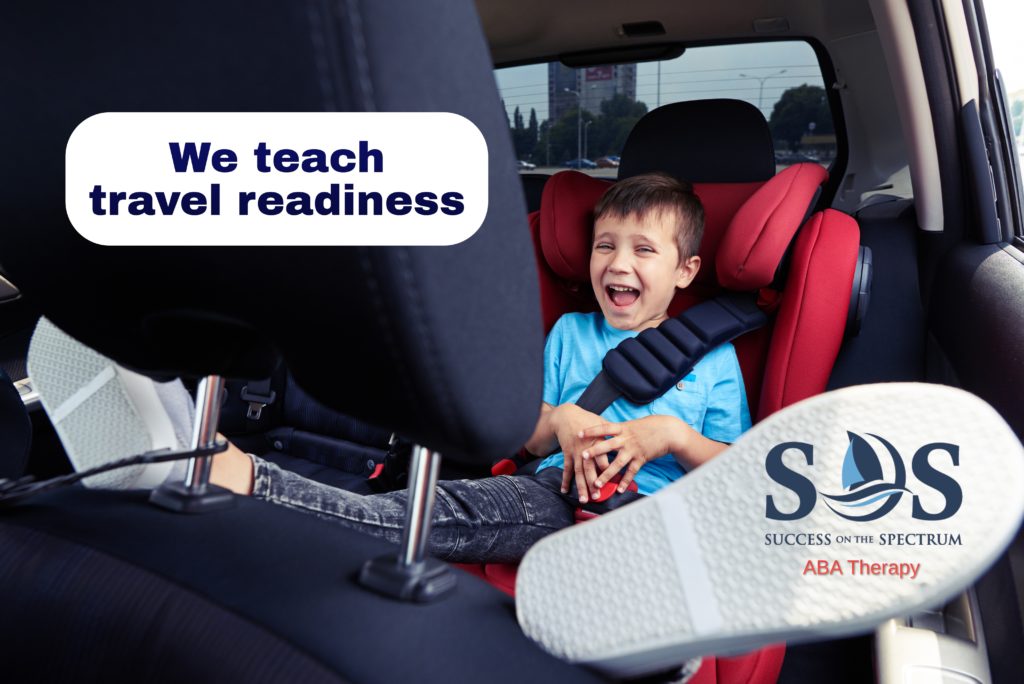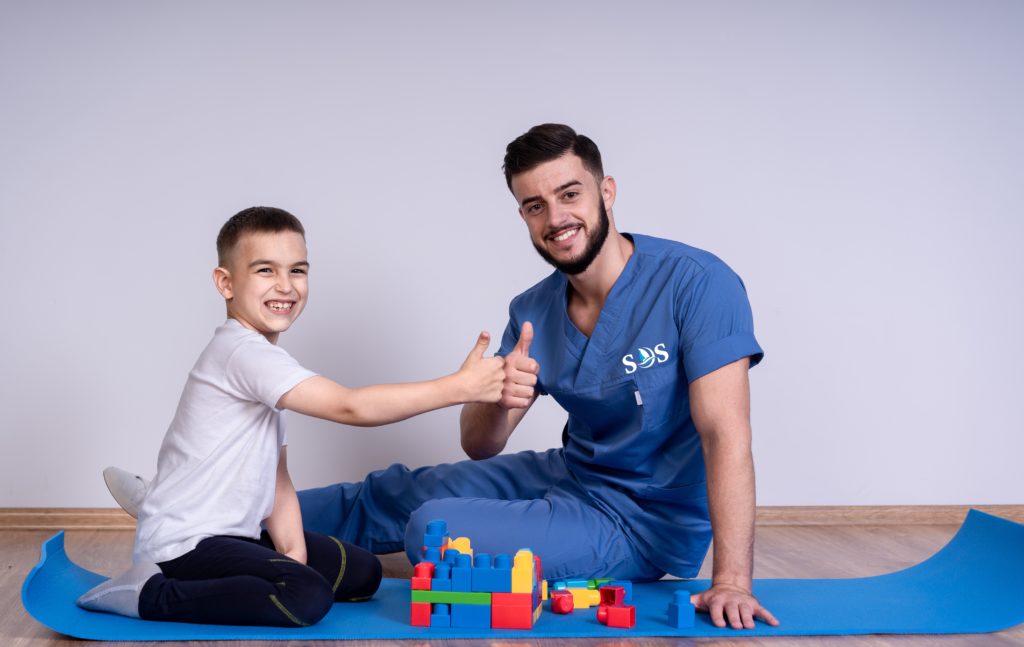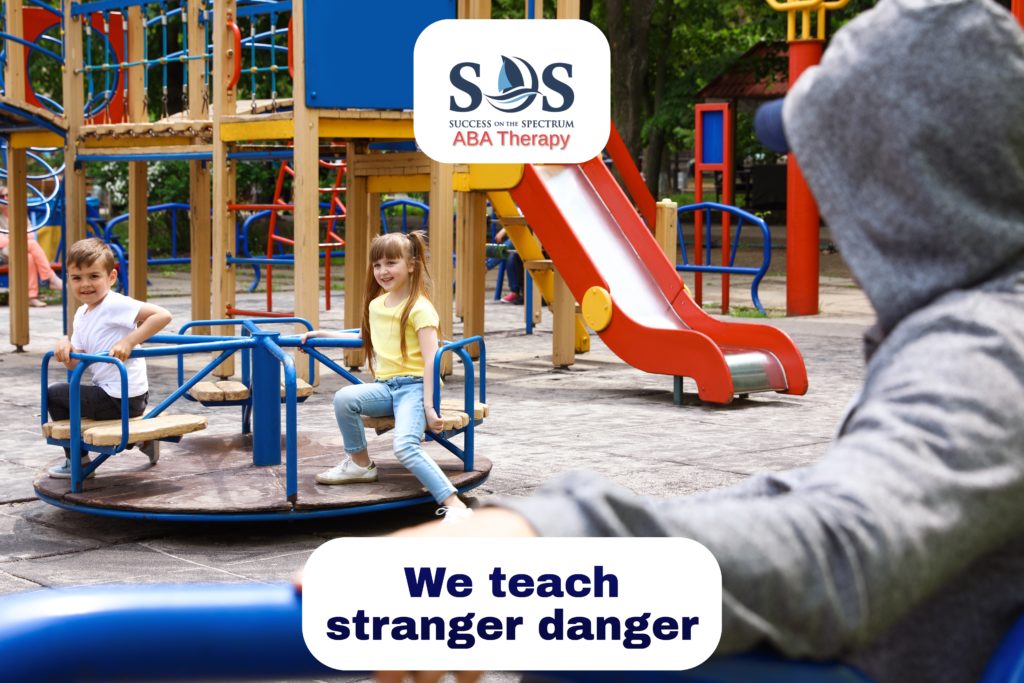Life skills training for autism in Lithia, FL, is essential for helping children develop independence and confidence in their daily routines. Through Applied Behavior Analysis (ABA), children with autism can learn many practical skills that improve their ability to participate in home, school, and community environments.
These skills are introduced through structured, individualized programs tailored to each child’s needs and learning style. From self-care routines to social interaction and task completion, ABA-based life skills training offers consistent, supportive guidance that fosters meaningful progress. For families in Lithia, this training represents a valuable step toward long-term growth and autonomy.
Establishing Structure with ABA Daily Routines Training in Lithia
ABA daily routine training in Lithia provides a systematic framework that helps children with autism complete everyday tasks consistently. Instruction focuses on clear expectations, stepwise teaching, and repetition to reduce ambiguity and support independence.
Designing Predictable Sequences
Therapists break routines into small, teachable steps and model each action until the child can reliably perform it. This approach supports smoother transitions throughout the day.
- Task analysis: Each routine is divided into sequential steps practiced in order.
- Prompting hierarchy: Cues progress from most to least intrusive to promote independence.
- Generalization planning: Skills are practiced in multiple settings to ensure transfer.
Consistent sequencing reduces anxiety and improves home, school, and community participation.
Reinforcement and Visual Supports
Motivation and clarity are reinforced with tools that make expectations visible and progress measurable. These supports are individualized to match the child’s learning profile.
- Visual schedules: Picture or icon-based charts outline what happens next and when.
- Reinforcement systems: Token boards or immediate praise strengthen accurate completion.
- Timing and pacing aids: Timers and first–then boards structure start, duration, and finish.
With predictable cues and meaningful reinforcement, children learn to initiate tasks, sustain effort, and complete routines with greater independence.
Promoting Self-Sufficiency Through Autism Independence Programs in Lithia, Florida
Autism independence programs in Lithia, Florida, emphasize practical, functional skills that help children participate more fully at home and in the community. Instruction is individualized, data-informed, and delivered through consistent, structured practice.
Teaching Practical Daily Living Skills
Therapists apply task analysis, visual supports, and reinforcement to break complex activities into manageable steps. Families receive guidance to maintain consistency across settings.
- Personal hygiene routines: Stepwise instruction supports brushing teeth, handwashing, and grooming.
- Meal preparation basics: Graduated tasks build skills from setting the table to simple snack assembly.
- Dressing independence: Visual cues and chaining techniques increase accuracy with zippers, buttons, and shoes.
These targeted methods reduce prompt dependence and promote reliable performance of daily tasks.
Building Community and Home Independence
Programs also address skills needed beyond self-care, focusing on organization, safety, and responsibility. Structured practice and generalization plans ensure skills transfer to real-life contexts.
- Household participation: Checklists teach chores such as putting toys away or sorting laundry.
- Time and schedule management: Timers and calendars support understanding “first–then,” start times, and duration.
- Safety awareness: Explicit instruction covers asking for help, identifying safe adults, and following rules in public spaces.
These programs increase confidence and measurable independence across everyday environments by strengthening core routines and community readiness.
3. Encouraging Interaction Through Social Skills Development for Autism in Lithia
Structured social skills development for autism in Lithia focuses on measurable goals that improve everyday interaction. Using data-informed methods, instruction targets communication foundations, peer engagement, and flexibility across settings.
Targeted Social Communication Goals
Therapists identify priority skills through assessment and design sessions that teach clear, repeatable behaviors.
- Initiating interaction: Practice greetings, requests, and help-seeking in predictable formats.
- Conversational turn-taking: Teach timing, topic maintenance, and appropriate responses.
- Nonverbal understanding: Build recognition of facial expressions, gestures, and personal space.
These goals are introduced with prompting and reinforcement, then systematically faded to promote independent use in natural environments.
Practice and Generalization in Real Contexts
Skills strengthen when rehearsed across people, places, and materials. Programs incorporate structured practice and planned generalization to ensure transfer beyond therapy.
- Peer-mediated activities: Small-group play and cooperative tasks provide controlled opportunities to engage.
- Role-play and scripting: Rehearse common scenarios such as sharing, waiting, and resolving minor conflicts.
- Community-linked practice: Apply skills in classrooms, clinics, and family routines for consistency.
Ongoing data collection tracks skills’ accuracy and frequency, guiding timely instruction adjustments. Children demonstrate improved participation, greater confidence, and more reliable social interaction across home, school, and community settings with repeated, context-rich practice.
4. Building Communication for Everyday Needs
Effective communication supports safety, independence, and participation in daily routines. ABA-based instruction develops clear, functional language and alternative communication methods so children can express needs and understand expectations across home, school, and community settings.
Developing Expressive and Receptive Language
Instruction targets the building blocks of communication, using modeling, prompting, and reinforcement to establish reliable skills.
- Requesting needs: Teach phrases or symbol exchanges to obtain items, activities, or assistance.
- Following directions: Practice one- and two-step instructions embedded in everyday tasks.
- Vocabulary expansion: Systematically introduce functional words used during meals, hygiene, and play.
These skills are practiced in brief, frequent trials and reviewed with data to ensure steady progress and accurate use.
Functional Communication Across Settings
Generalization plans ensure skills carry over beyond therapy. Visual supports and predictable routines help children communicate effectively with different people and in varied environments.
- AAC consistency: Maintain shared icons, core boards, or devices across caregivers for uniform practice.
- Help and refusal: Teach appropriate ways to request assistance or decline tasks without challenging behavior.
- Schedule and transitions: Use first–then boards, timers, and visual schedules to anticipate changes.
Therapists fade prompts as independence increases, and families receive guidance to sustain outcomes. With consistent practice and coordinated support, children communicate clearly and participate more confidently in everyday activities.
5. Developing Safety Awareness and Responsibility
Safety awareness and personal responsibility are essential life skills that support independence across home, school, and community environments. Instruction is structured, measurable, and aligned with each child’s learning profile to ensure reliable real-life application.
Teaching Core Safety Skills
Therapists use modeling, visual cues, and practice in controlled settings before moving to natural contexts.
- Street and public navigation: Practice stopping at curbs, using crosswalks, and waiting for walk signals.
- Emergency procedures: Learn to recognize alarms, follow exit routes, and seek help from identified adults.
- Personal boundaries and safe adults: Identify trusted helpers, maintain personal space, and use clear refusal language.
Skills are rehearsed with prompting and reinforcement, then generalized to real locations with fading supports.
Promoting Responsibility in Daily Routines
Responsibility develops through clear expectations, task analysis, and consistent follow-through.
- Household contributions: Use checklists for age-appropriate chores such as toy pickup or table setting.
- Organization and time awareness: Apply visual schedules, timers, and “first–then” tools to manage tasks.
- Community rule following: Rehearse store, library, and playground rules using role-play and social stories.
Data on accuracy and independence inform adjustments to instruction. As prompt levels decrease, children demonstrate safer choices and consistent follow-through, building dependable habits supporting long-term autonomy and participation.
6. Strengthening Problem-Solving and Decision-Making Skills
ABA-based instruction develops practical problem-solving and decision-making skills that children can apply across daily routines. Instruction is explicit, scaffolded, and supported by data to promote steady gains and durable independence.
Teaching Systematic Problem-Solving
Therapists model stepwise approaches and fade prompts as accuracy improves, helping children analyze situations and select effective responses.
- Task analysis: Break a challenge into small steps to identify where help is needed.
- Errorless teaching: Prevent practice of incorrect responses while establishing the correct sequence.
- Functional communication: Teach requesting help or clarification before frustration escalates.
Targeted practice across settings strengthens generalization and reduces reliance on adult direction.
Building Decision-Making and Flexibility
Instruction emphasizes making informed choices, tolerating changes, and adapting strategies when plans shift.
- Choice-making opportunities: Offer structured options to build autonomy and evaluate outcomes.
- First–then planning: Use visual schedules to compare options and understand consequences.
- Coping strategies: Teach breathing, countdowns, or movement breaks to maintain regulation during change.
Progress is monitored with measurable goals, and supports systematically fade as independence increases. With consistent practice and coordinated reinforcement, children demonstrate improved persistence, thoughtful choices, and adaptable responses in home, school, and community environments.
7. Supporting School Readiness and Academic Participation
School readiness requires reliable classroom behaviors, clear communication, and participation in group instruction. ABA-based strategies build these skills through explicit teaching, structured practice, and data-informed adjustments across settings.
Developing Core Classroom Behaviors
Instruction targets behaviors that enable participation and reduce learning barriers. Visual supports, prompting hierarchies, and reinforcement establish consistency and independence.
- Attending to instruction: Teach sustained focus during lessons and small-group activities.
- Following directions: Practice one- and multi-step directions embedded in classroom routines.
- Transition routines: Use schedules and timers to move between tasks without disruption.
Generalization plans extend these behaviors from therapy to the classroom to ensure stable performance with teachers and peers.
Strengthening Academic and Organizational Skills
Therapists align targets with classroom expectations, integrating fine-motor, pre-academic, and executive-function skills into measurable goals.
- Work initiation and completion: Establish start cues, chunk assignments, and reinforce on-time finishes.
- Fine-motor and pre-literacy foundations: Build pencil grasp, scissor use, letter formation, and basic symbol recognition.
- Organization and materials management: Teach folder systems, desk organization, and pack–unpack routines.
Progress is monitored with daily data, and supports are faded as accuracy improves. With consistent instruction and coordinated collaboration with educators, students demonstrate higher engagement, improved productivity, and more independent participation in academic activities.
Conclusion
ABA-based life skills training equips children with practical abilities that support daily participation at home, in school, and the community. Children develop measurable independence by establishing predictable routines, strengthening communication, building social competence, and reinforcing safety, problem-solving, and academic readiness. Individualized, data-informed instruction ensures goals are relevant and attainable, while coordinated family involvement sustains progress across settings. With consistent practice and structured support, children gain confidence and demonstrate reliable skills that improve quality of life and long-term outcomes.
Learn more or request information: https://childrensacademyfishhawk.com/contact-us/ or 813-689-6819.




